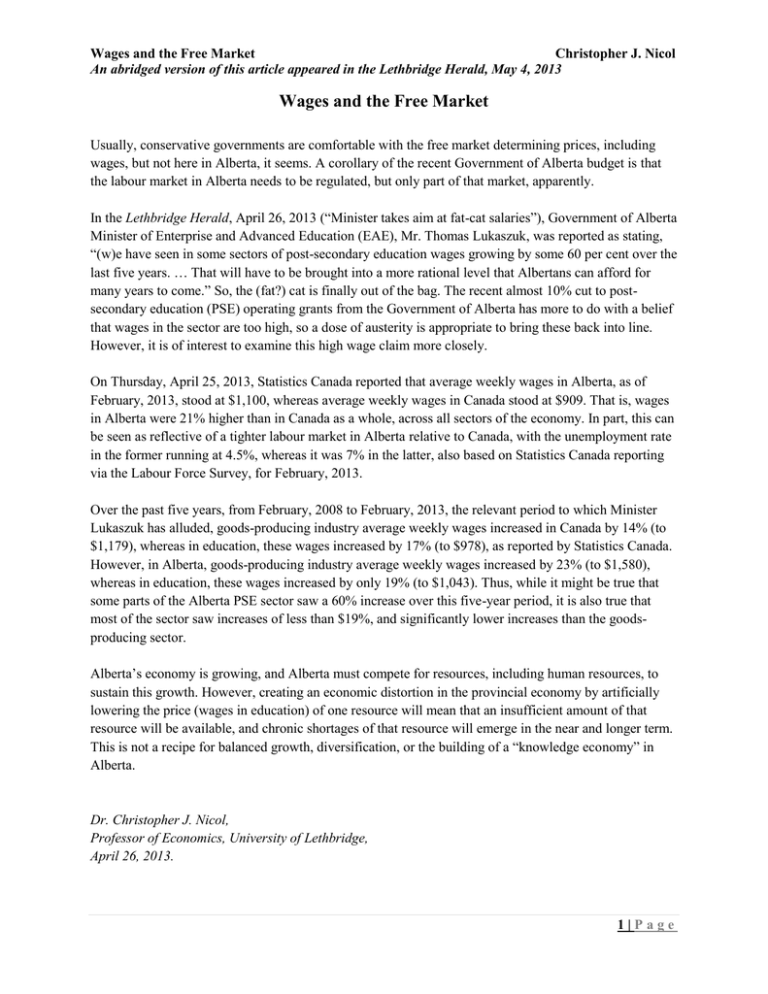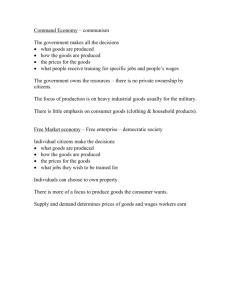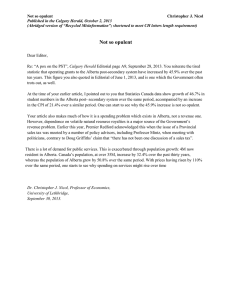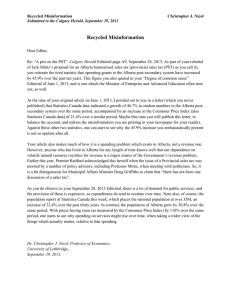Document 13386578
advertisement

Wages and the Free Market Christopher J. Nicol An abridged version of this article appeared in the Lethbridge Herald, May 4, 2013 Wages and the Free Market Usually, conservative governments are comfortable with the free market determining prices, including wages, but not here in Alberta, it seems. A corollary of the recent Government of Alberta budget is that the labour market in Alberta needs to be regulated, but only part of that market, apparently. In the Lethbridge Herald, April 26, 2013 (“Minister takes aim at fat-cat salaries”), Government of Alberta Minister of Enterprise and Advanced Education (EAE), Mr. Thomas Lukaszuk, was reported as stating, “(w)e have seen in some sectors of post-secondary education wages growing by some 60 per cent over the last five years. … That will have to be brought into a more rational level that Albertans can afford for many years to come.” So, the (fat?) cat is finally out of the bag. The recent almost 10% cut to postsecondary education (PSE) operating grants from the Government of Alberta has more to do with a belief that wages in the sector are too high, so a dose of austerity is appropriate to bring these back into line. However, it is of interest to examine this high wage claim more closely. On Thursday, April 25, 2013, Statistics Canada reported that average weekly wages in Alberta, as of February, 2013, stood at $1,100, whereas average weekly wages in Canada stood at $909. That is, wages in Alberta were 21% higher than in Canada as a whole, across all sectors of the economy. In part, this can be seen as reflective of a tighter labour market in Alberta relative to Canada, with the unemployment rate in the former running at 4.5%, whereas it was 7% in the latter, also based on Statistics Canada reporting via the Labour Force Survey, for February, 2013. Over the past five years, from February, 2008 to February, 2013, the relevant period to which Minister Lukaszuk has alluded, goods-producing industry average weekly wages increased in Canada by 14% (to $1,179), whereas in education, these wages increased by 17% (to $978), as reported by Statistics Canada. However, in Alberta, goods-producing industry average weekly wages increased by 23% (to $1,580), whereas in education, these wages increased by only 19% (to $1,043). Thus, while it might be true that some parts of the Alberta PSE sector saw a 60% increase over this five-year period, it is also true that most of the sector saw increases of less than $19%, and significantly lower increases than the goodsproducing sector. Alberta’s economy is growing, and Alberta must compete for resources, including human resources, to sustain this growth. However, creating an economic distortion in the provincial economy by artificially lowering the price (wages in education) of one resource will mean that an insufficient amount of that resource will be available, and chronic shortages of that resource will emerge in the near and longer term. This is not a recipe for balanced growth, diversification, or the building of a “knowledge economy” in Alberta. Dr. Christopher J. Nicol, Professor of Economics, University of Lethbridge, April 26, 2013. 1|Page




